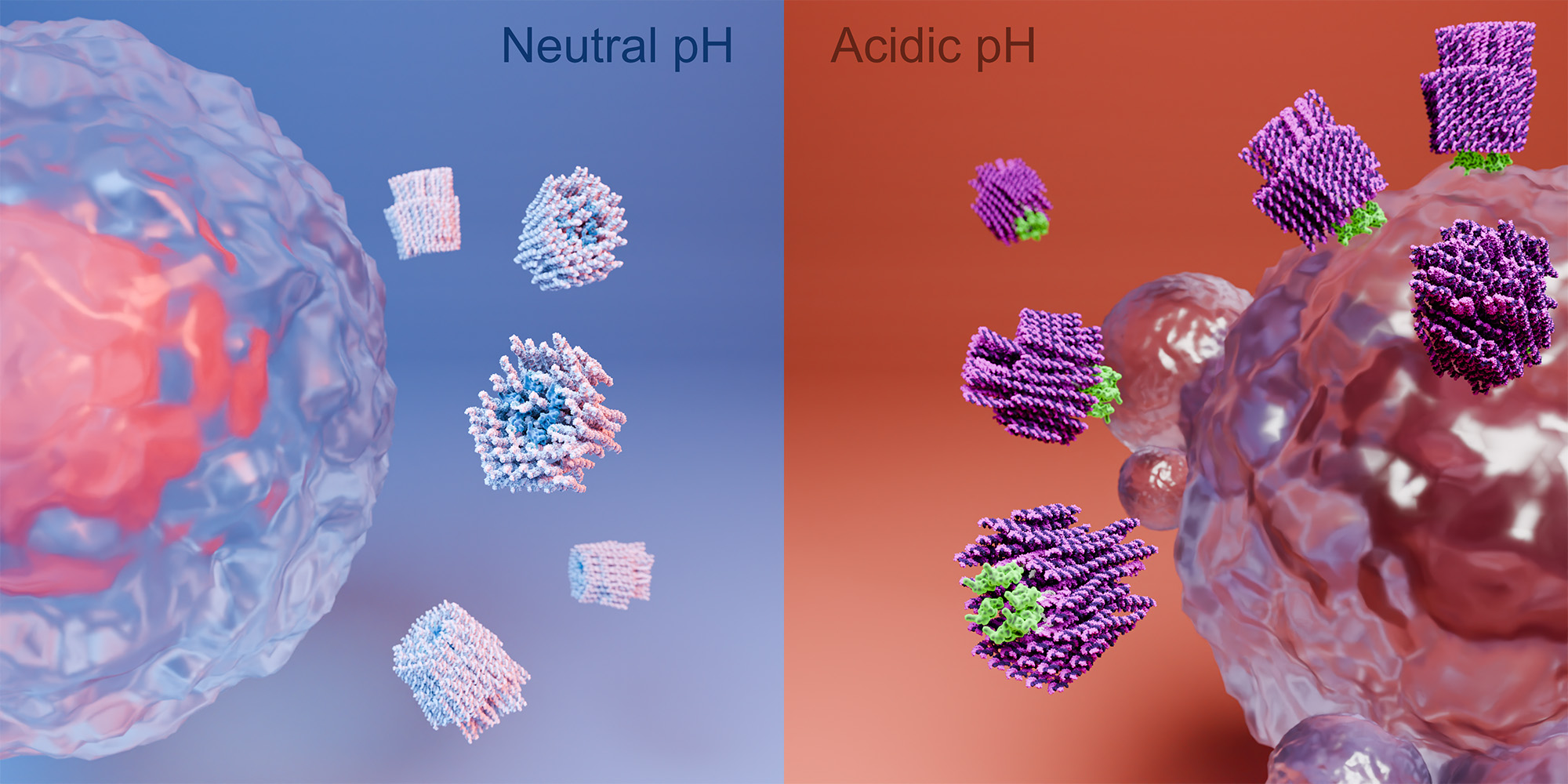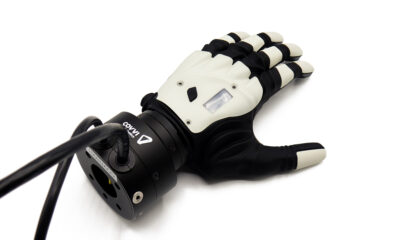News
Tumor-Fighting Nanobots Could Revolutionize Cancer Treatment
The tiny DNA-based robots target and destroy diseased cells while sparing healthy tissue.

In a significant leap forward in cancer therapy, scientists at Sweden’s Karolinska Institutet have engineered nanobots capable of selectively targeting and eradicating tumor cells. This innovation has the potential to become a powerful new tool in combating a deadly disease which continues to claim millions of lives worldwide.
The nanobots are crafted using a process known as DNA origami, which involves folding DNA molecules into precise shapes at an incredibly small scale. These microscopic robots use a hexagonal arrangement of peptides hidden within their structure. The lethal mechanism remains inactive until it encounters the acidic environment typically surrounding solid tumors, ensuring that healthy cells remain unharmed.

Professor Björn Högberg, from the Department of Medical Biochemistry and Biophysics at Karolinska Institutet and the study’s lead investigator, elaborates on the breakthrough: “The hexagonal nanopattern of peptides acts as a potent weapon. If administered directly as a drug, it could cause widespread damage by killing cells indiscriminately. To prevent this, we have ingeniously concealed the weapon inside a DNA-based nanostructure”.
The remarkable abilities of the nanobots lie in their ability to detect the difference in pH levels between healthy and cancerous tissues. The lethal peptides remain securely hidden in normal tissues, where the pH level is around 7.4. However, in the more acidic environment of cancerous tissues, where the pH drops to 6.5, the nanobots’ hidden weapon is triggered, leading to the destruction of cancer cells.
Also Read: Insilico Develops The World’s First Fully AI-Generated Drug
During preclinical experiments, these nanobots were injected into mice with breast cancer. The results were impressive, showing a 70% reduction in tumor growth in the mice treated with active nanobots compared to those given an inactive version. These promising findings pave the way for additional studies to evaluate the nanobots’ effectiveness in more advanced cancer models and identify potential side effects.
“We now need to test this approach in more complex cancer models that better simulate human disease,” explained Yang Wang, the study’s first author and a researcher at Karolinska Institutet’s Department of Medical Biochemistry and Biophysics. “It’s also crucial to determine the method’s side effects before we can move on to human trials”.
Although still in the early stages, the technology marks a significant advance in the field of personalized cancer therapy. The researchers are hopeful about the future, with plans to further refine the nanobots by attaching specific proteins or peptides that could bind more accurately to particular cancer cells, thereby enhancing their precision and effectiveness.
News
Rabbit Expands Hyperlocal Delivery Service In Saudi Arabia
The e-commerce startup is aiming to tap into the Kingdom’s underdeveloped e-grocery sector with a tech-first, locally rooted strategy.

Rabbit, an Egyptian-born hyperlocal e-commerce startup, is expanding into the Saudi Arabian market, setting its sights on delivering 20 million items across major cities by 2026.
The company, founded in 2021, is already operational in the Kingdom, with its regional headquarters now open in Riyadh and an established network of strategically located fulfillment centers — commonly known as “dark stores” — across the capital.
The timing is strategic: Saudi Arabia’s online grocery transactions currently sit at 1.3%, notably behind the UAE (5.3%) and the United States (4.8%). With the Kingdom’s food and grocery market estimated at $60 billion, even a modest increase in online adoption could create a multi-billion-dollar opportunity.
Rabbit also sees a clear alignment between its business goals and Saudi Arabia’s Vision 2030, which aims to boost retail sector innovation, support small and medium-sized enterprises, attract foreign investment, and develop a robust digital economy.
The company’s e-commerce model is based on speed and efficiency. Delivery of anything from groceries and snacks to cosmetics and household staples is promised in 20 minutes or less, facilitated by a tightly optimized logistics system — a crucial component in a sector where profit margins and delivery expectations are razor-thin.
Despite the challenges, Rabbit has already found its stride in Egypt. In just over three years, the app has been used by 1.4 million customers to deliver more than 40 million items. Revenue has surged, growing more than eightfold in the past two years alone.
Also Read: Top E-Commerce Websites In The Middle East In 2025
CEO and Co-Founder Ahmad Yousry commented: “We are delighted to announce Rabbit’s expansion into the Kingdom. We pride ourselves on being a hyperlocal company, bringing our bleeding-edge tech and experience to transform the grocery shopping experience for Saudi households, and delivering the best products – especially local favorites, in just 20 minutes”.
The company’s growth strategy avoids the pitfalls of over-reliance on aggressive discounting. Instead, Rabbit leans on operational efficiency, customer retention, and smart scaling. The approach is paying off, having already attracted major investment from the likes of Lorax Capital Partners, Global Ventures, Raed Ventures, and Beltone Venture Capital, alongside earlier investors such as Global Founders Capital, Goodwater Capital, and Hub71.
























